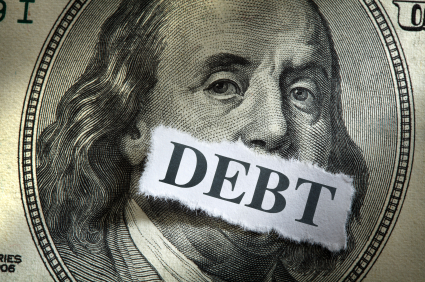Bankruptcy stops the recording of tax liens by the IRS or the California Franchise Tax Board. The recording of a tax lien effectively turns a debt without any collateral into a debt with collateral consisting of most or all of your property. Since bankruptcy favors creditors with collateral much more than those without, filing bankruptcy before the recording of a tax lien can often save you lots of money.
In the case of most debt tied to collateral-such as a vehicle loan or mortgage-the creditor receives a lien attached to the collateral at the time you first get the loan. The most important fact to understand with tax liens is that, in contrast, YOU have some control about whether the taxing authorities have rights to your possessions and property.
These points will help make sense of all this:
- You can legally write off income taxes in certain specific situations, depending on a list of considerations mostly having to do with the age of the tax-the older the better .
- Bankruptcy can write off debts, including some taxes, but it can’t get rid of most liens.
- Whether you must pay a tax or not after filing bankruptcy, and how much of it, can turn on whether that tax is secured by a lien on your possessions and/or real estate.
- The taxing authorities do NOT have an enforceable lien on your real estate or possessions unless and until they go through the formal step of recording a tax lien.
- The IRS and Franchise Tax Board have internal practices about what factors they will consider before filing a tax lien. But practically speaking it’s not easy to tell when they will record a lien.
- Property exemptions protect your assets from your general creditors and from the bankruptcy trustee acting on behalf of those creditors. But exemptions DON’T protect your assets from tax liens. As a result, a recorded tax lien attaches to equity in your home without any regard for the otherwise applicable homestead exemption. And maybe the most troublesome, if you have any retirement funds a tax lien usually attaches to those funds, regardless that they’d be protected from almost all other creditors.
- If you file any kind of bankruptcy BEFORE a tax lien is recorded, that stops the IRS and the Franchise Tax Board from doing so. Tax liens can’t be recorded as long as your bankruptcy case remains active.
- IF the tax is discharged (legally written off) in your bankruptcy case, the taxing authority can no longer record a tax lien once the bankruptcy is completed.
- However, if a tax is NOT discharged in the bankruptcy case, then the IRS or Franchise Tax Board can pursue the debt with whatever legal tools it has, including recording a tax lien after the bankruptcy case is finished.
What does all this mean? If you have a tax which would have been written off in bankruptcy, but the taxing authority recorded a tax lien before you filed your bankruptcy case, that lien remains attached to your assets even AFTER the completion of your bankruptcy case. The IRS or Franchise Tax Board can then enforce its lien, by putting pressure on you to pay in order to prevent the tax foreclosure of your home and/or other possessions.
But what if you do not own real estate, or none with any equity, and your possessions have little marketable value? Sometime the IRS/Franchise Tax Board will release its lien after the bankruptcy is over if that lien does not effectively attach to anything of any value. But sometimes instead of releasing the lien, they may just let it stay in effect, in case, for example, your home value rises later, creating equity for them to use as leverage against you then.
You can avoid handing the IRS and the Franchise Tax Board these advantages by filing bankruptcy before they record a tax lien. The difference can be huge-on one hand paying NOTHING on a tax debt because that debt is discharged, and on the other hand paying ALL that tax because the recorded tax lien attached to your home or in retirement fund.
So, if you owe income taxes, you should see an attorney about your bankruptcy options just as soon as possible.

